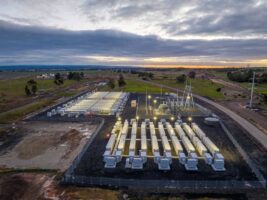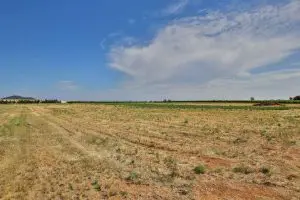Australia-based Gelion, whose non-flow zinc-bromide energy storage technology was spun out of the University of Sydney, has been tapped to trial its Endure batteries at a solar farm in northern Spain.
Gelion says it has been chosen for the Spanish trial by Acciona Energy, as part of the renewables giant’s “I’mnovation” program, which aims to unearth innovative solutions in energy storage.
Gelion and three other start-ups selected by Acciona are given the opportunity to test their technologies over a period of six-12 months at the experimental Montes del Cierzo 1.2MW-peak photovoltaic plant in Tudela, Navarra, starting in July.
If the trial is a success, Gelion’s Endure battery will form part of Acciona’s supplier portfolio as a renewable energy storage provider – which is, potentially, a very big deal, considering Acciona is one of Europe’s biggest renewables developers, with projects on every continent.
“This is a strong show of confidence in our robust energy storage technology,” said Gelion CEO, Andrew Grimes, in a statement.
“After listing on the London Stock Exchange’s AIM market, we are tremendously pleased to have been selected by Acciona to trial our batteries in-field at its experimental renewable energy facilities.”
The trial with Acciona follows Gelion’s agreement, late last year, with Mayur Renewables, a division of ASX-listed Mayur Resources, to provide an initial 100MWh of energy storage for power projects in Papua New Guinea over the next five years.
Gelion’s battery technology uses an electrolytic gel that is inherently fire retardant. In a recent test by the company’s tech team, the battery did not catch fire, and even continued to operate, while being heated on a barbeque plate at about 700 degrees for half an hour.
On a practical level, this means the Endure battery systems can operate at temperatures up to 50°C without the need for air-conditioning systems.
Other advantages include that the batteries be discharged to zero volts without impacting performance, are more energy dense and last longer than traditional lead-acid batteries, and offer a safe and recyclable alternative to lithium-ion batteries for stationary storage.
On costs, Gelion has been able to keep these down by using cheaper components and by producing the batteries in existing lead acid battery factories – earlier in 2021 the company announced a manufacturing partnership with local Sydney-based outfit, Battery Energy.










